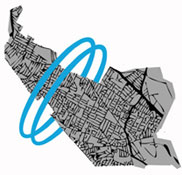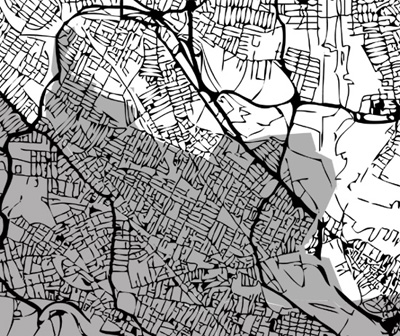
| 2010s | - | 2020s | - | 2030s | - | 2040s | - | 2050s | - | 2060s | - | 2070s | - | 2080s | - | 2090s | - | 2100 | |
| 2050 | - | 2051 | - | 2052 | - | 2053 | - | 2054 | - | 2055 | - | 2056 | - | 2057 | - | - | 2059 |
|
Community participant predictions Somerville and
Cambridge have merged.
--- Somerville grows
20% of the food it consumes. --- The city experiences
drainage problems in 2050, resulting in significant loss of water
quality. Low lying apartments and businesses along the Mystic are
abandoned or rebuilt. Assembly Square Mall abandoned. --- Union Square
is the hot new place to live; artists and students are forced to
move because of rising rent. Somerville Hospital has become a world-famous
addiction rehab center for the rich and famous.
--- Sometime between
2050-2060, a major hurricane strikes town. Many low-lying parcels
are flooded, and there is extensive damage to property near the
Mystic. To better cope with these catastrophes, political boundaries
are redrawn again; the new Somerville now merges with Charlestown
and a portion of Medford. This new city is called "Peninsular
City."
|
Other predictions Global greenhouse
gas emissions cut in half (source: Kuhn, "G8 pledges to
halve emissions by 2050," NPR) --- Boston metro
region is a leading cultural and economic capital, known for environmental
leadership. --- 50 percent of
the world's energy comes from renewables. --- European Union
is home to 449m people. Worldwide Muslim population is now 2 billion.
India is a major global power, while US's power is greatly diminished.
--- The world has
become a market-based democracy, with no central economic power.
Nations start to deconstruct. This means states won't be able to
enforce rights. NGOs and companies will try to enforce rules--both
as law-giving bodies, and with private security forces. --- Humans have
begun having sex with, and marrying robots --- World population
is 9.3 billion. Developing countries see population growth, as industrialized
countries remain stable. --- Number of people
worldwide with Alzheimer's disease tops 100m.
|

